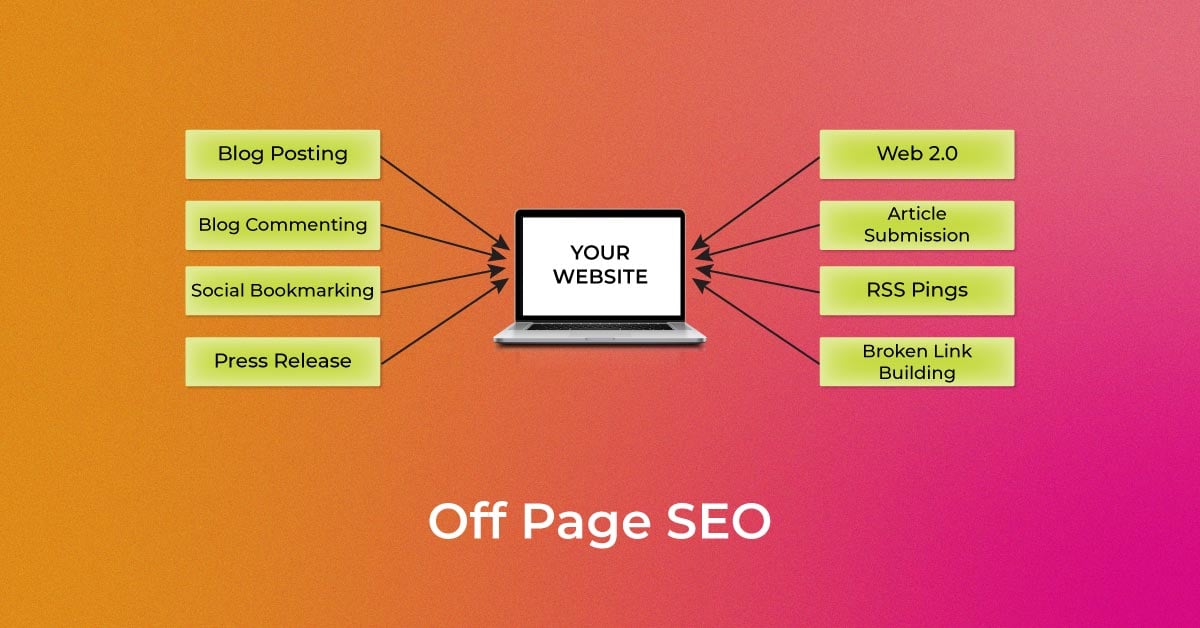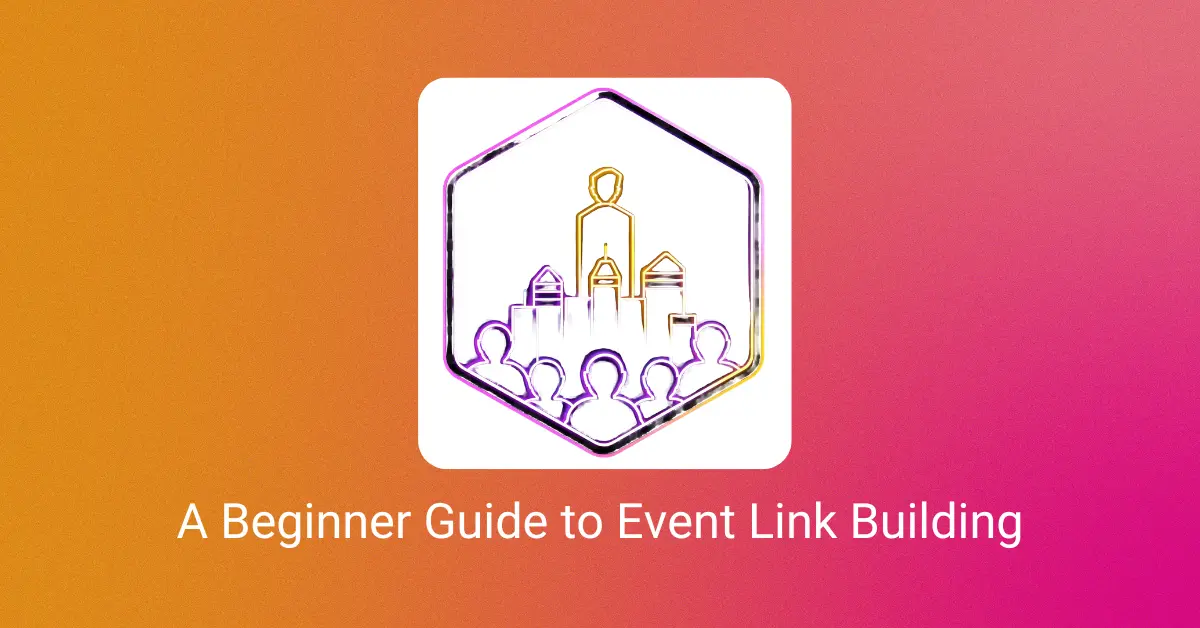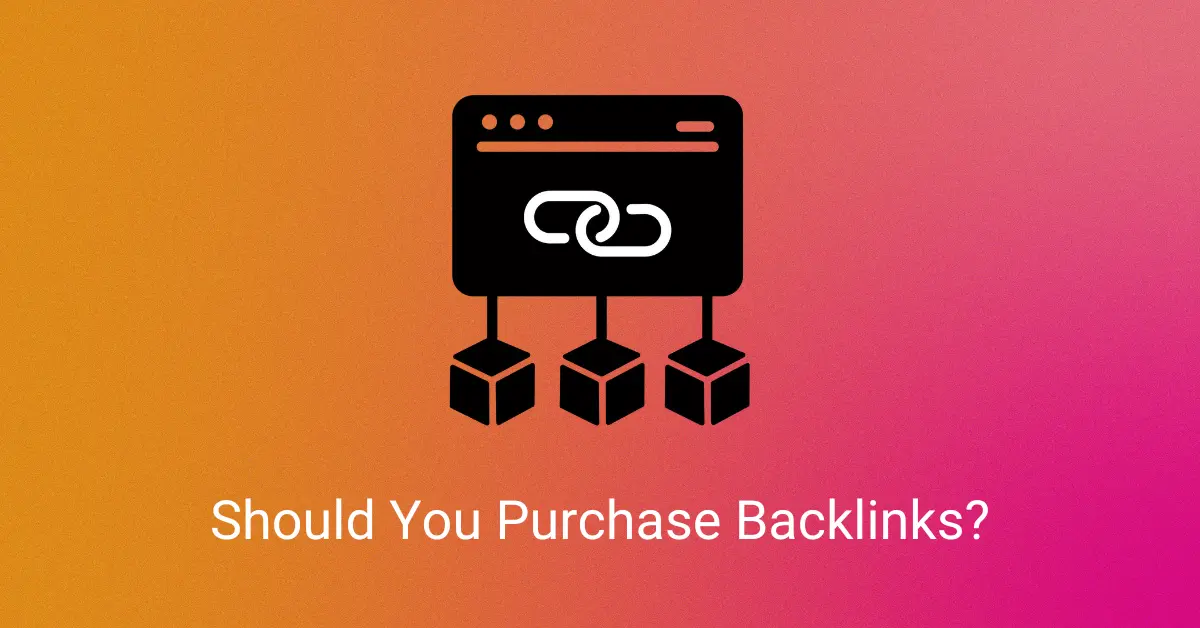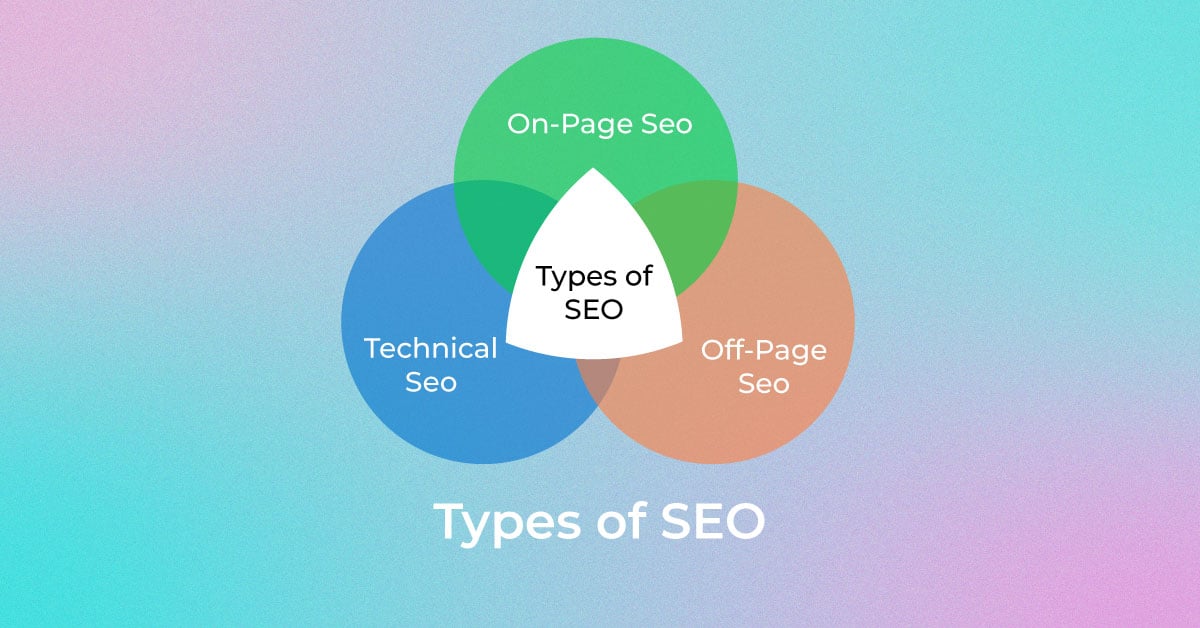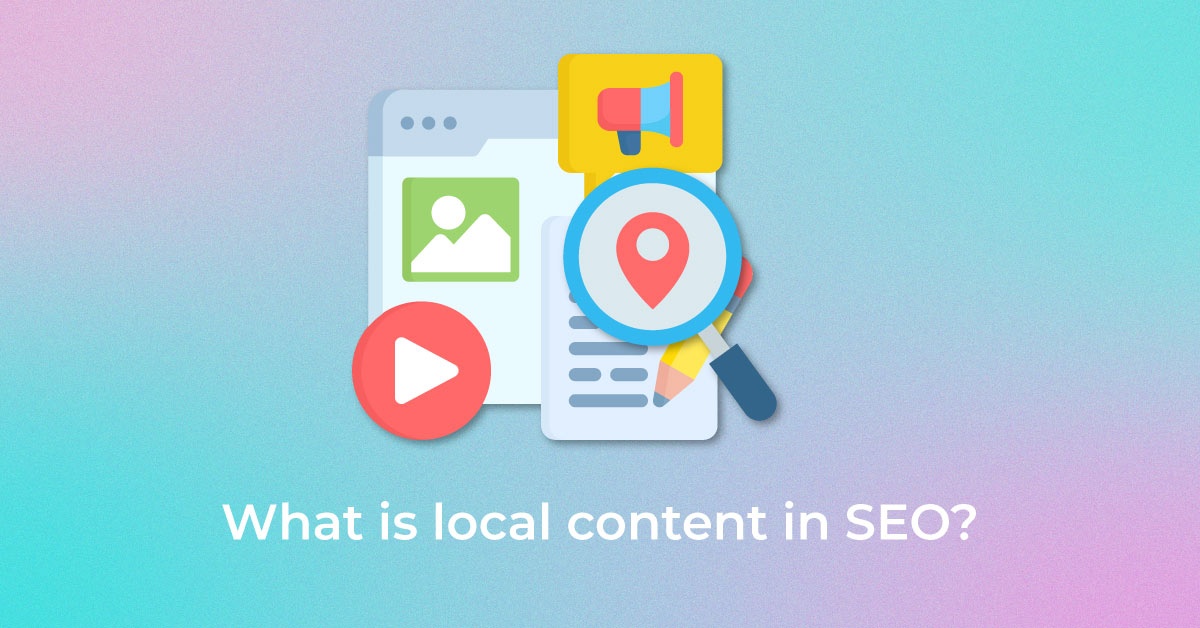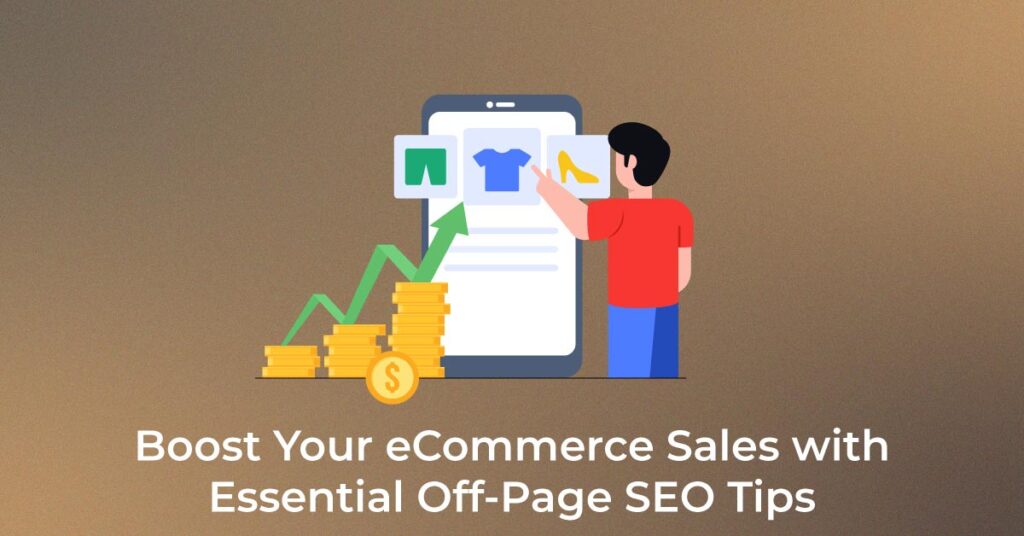What is Off-Page SEO and Why Does it Matter for E-commerce?
In the digital marketplace, where competition is as vast as the array of products offered, establishing a robust online presence is a must—and that’s where Search Engine Optimization comes into play for e-commerce stores. Beyond the realm of your website’s on-page content, Off-Page SEO acts as the unseen force driving your e-commerce brand toward a pinnacle of authority and credibility. With essential strategies that include building quality backlinks, engaging on social platforms, and encouraging consumer interactions, an effective Off-Page SEO plan isn’t just a nice-to-have—it’s essential for drawing the spotlight to your virtual storefront and outshining your competitors in the search engine results.
Understanding Off-Page SEO for Ecommerce Success
Off-page SEO is the strategic art of improving your ecommerce store’s presence outside your website’s boundaries. It’s all about establishing your brand’s authority through various online channels, which can significantly influence how search engines perceive your business. In the bustling online marketplace, off-page SEO can be the catalyst that propels your ecommerce business into the limelight, getting you noticed by both search engines and potential customers. But why, you might wonder, does it carry such weight for e-commerce success?
Well, consider this: when search engines see your brand being mentioned across the web, linked to by reputable sources, and engaged with on social media, it suggests you’re a key player in your niche. This builds trust and credibility, which search engines reward with improved rankings. Get it? By networking beyond your site, you can drive quality traffic, create buzz, and ultimately, boost your sales.
Imagine your ecommerce store as a rising star; off-page SEO is the publicist working tirelessly behind the scenes to ensure your name is on everyone’s lips. It’s that powerful, and for an ecommerce entrepreneur aiming to carve out a significant market share, understanding and leveraging off-page SEO can be a game-changer.
Off-Page SEO vs. On-Page SEO: Key Differences
Drawing a line between Off-Page and On-Page SEO is crucial to comprehending the full SEO landscape. On-page SEO is about fine-tuning elements within your website to make it more search-engine friendly, which means optimizing content, meta descriptions, and HTML tags. It’s about making your site deliciously readable and relevant for both search engine crawlers and human visitors.
Conversely, Off-Page SEO is the art of enhancing your website’s authority and reputation across the digital ecosystem. It’s akin to networking at a grand industry event, mingling with the crowd, and sharing engaging stories about your brand that resonate with the attendees (other websites and platforms). This strategy is less about the technical adjustments and more about the relationships you build and the impressions you leave in the virtual world.
To boil it down, On-Page is your direct line to search engines saying, “Look how relevant and user-friendly my content is!” while Off-Page retorts with, “Look how much the world values my content!” Both are integral; while On-Page gets everything shipshape on-site, Off-Page ensures the rest of the web is in sync with your brand’s authority and worth. An effective SEO strategy calls for a balanced blend of both to truly thrive in the competitive ecommerce space.
Advantages of Off-Page SEO for Ecommerce Websites
Enhancing Brand Visibility and Recognition
Building off-page SEO is like spreading your brand’s story across the digital landscape. When your ecommerce business is discussed on various platforms, it signals your presence to search engines and potential customers, enhancing visibility in a competitive market.
Leveraging social media is crucial—each platform showcases a different aspect of your brand. Instagram highlights your products visually, while Twitter shares quick updates and testimonials that resonate with your audience. The goal is to engage with customers where they are, creating content that sparks conversations.
An endorsement from an influential figure can significantly boost your brand’s credibility, driving traffic to your site. By prioritizing off-page efforts, you position your brand to be recognized and remembered, transforming casual browsers into loyal customers and elevating your ecommerce business to a level where you’re not just participating in the market but influencing it.
Building Trust and Authority in a Competitive Market
In the vast online marketplace, trust and authority are essential for your ecommerce business to stand out. Off-page SEO is crucial in expanding your brand’s reach and solidifying your reputation by fostering relationships and showcasing expertise.
Building trust starts with quality backlinks from reputable websites, akin to endorsements from industry leaders. Each link reinforces your credibility, signaling to search engines and potential customers that your content is trustworthy. This network of connections also enhances your domain authority, improving your search ranking.
Active participation in industry communities, such as forums and Q&A sites, demonstrates your commitment to your niche and the value you offer. Maintaining ethical practices and authentic communication is vital; once credibility is damaged, it’s hard to restore. By engaging with your audience and leveraging professional affiliations, you can establish your brand as the go-to expert, guiding customers to choose your digital storefront over others.
How Off-Page SEO Drives Traffic and Sales
Off-page SEO is essential for your ecommerce business, creating a cycle of increased traffic and revenue. By boosting your online visibility and authority, you attract more visitors, which leads to higher conversions.
Quality backlinks serve as word-of-mouth endorsements from reputable sources, enhancing your website’s ranking and organic traffic. Engaging on social media and collaborating with influencers keeps your brand top of mind for customers.
This strategy brings qualified traffic; visitors from trusted blogs or product reviews are more likely to convert. Think of off-page SEO as a megaphone amplifying your brand’s presence, driving a steady stream of interested visitors ready to browse and shop. It’s about attracting those who are prepared to engage with your brand.
Improving Search Engine Rankings
Off-page SEO is crucial for boosting your ecommerce website’s search engine rankings, as higher visibility establishes authority and trust among consumers. This strategy relies on backlinks from various sources, which act as votes of confidence for your site. Search engines prioritize quality backlinks from relevant, authoritative sites.
Additionally, social signals—such as shares, likes, and comments—enhance visibility and indirectly influence rankings by driving traffic. Integrating brand mentions, digital PR, and influencer relationships can significantly elevate your product pages on search engine results pages (SERPs). Ultimately, investing in off-page SEO not only increases visibility but also establishes your brand as a trusted figure in your niche.
Top Off-Page SEO Techniques to Boost Your E-commerce Business
1. Building Quality Backlinks for E-commerce
Building quality backlinks is essential for enhancing your ecommerce website’s authority and search engine rankings. Focus on acquiring links from authoritative and relevant sites, as these serve as powerful endorsements. A relevant backlink carries more weight than a random one, so ensure your anchor text is contextually aligned with your content.
For instance, a link with the anchor text “premium organic coffee” from a reputable food blog can boost your SEO significantly. Ethical link-building practices, such as creating shareable content and forming genuine connections, are vital. Remember, a few high-quality backlinks are more valuable than many low-quality ones, helping establish your ecommerce store as a credible player in the digital marketplace.
2. Strengthening Brand Signals Through Social Media SEO
Social media SEO may not directly affect rankings, but it strengthens brand signals that search engines recognize. By optimizing your social media presence, you enhance your ecommerce brand’s visibility and online perception—key components of off-page SEO.
Consistently sharing engaging content, such as promotions and product launches, fosters audience interest and increases shares, likes, and comments. Encouraging user-generated content, like customer reviews on social platforms, serves as social proof and boosts visibility.
Running contests and giveaways can further enhance engagement, while social listening helps you monitor brand mentions to gauge public sentiment. Overall, a strong social media strategy enhances your brand’s relevance and recognition in the digital landscape.
3. Guest Blogging to Enhance Authority and Gain Links
Guest blogging is a vital off-page SEO tactic for boosting your ecommerce brand’s authority and acquiring quality backlinks. By publishing articles on reputable sites, you showcase your expertise to a broader audience while embedding valuable links to your store.
Choosing the right partners is essential; collaborate with sites that share your target audience and have high Domain Authority (DA) for effective backlinks. Focus on delivering valuable insights rather than self-promotion, and enhance your posts with rich content like infographics.
Optimizing your guest posts for SEO increases their visibility and link value. Establishing genuine, long-term relationships with partner sites can solidify your reputation as a thought leader in your niche and enhance your brand’s credibility over time.
4. Content Marketing as a Link Building Tool
Content marketing is a powerful link-building tool that enhances your off-page SEO efforts by organically attracting backlinks through valuable and shareable information. High-quality content—such as how-to guides, industry reports, infographics, and videos—encourages site owners to reference and link back to your site.
Different content formats cater to various stages of the customer journey, widening your reach and increasing traffic. Strategic distribution via social media, newsletters, and influencer collaborations boosts visibility and link acquisition potential.
Remember, effective content marketing for link building is an ongoing process. Consistently producing high-quality content establishes your ecommerce brand as a valuable knowledge source, leading to a sustainable accumulation of backlinks and a stronger SEO profile.
5. Influencer Marketing: Partnering for Greater Reach
Influencer marketing is transforming off-page SEO by harnessing the power of digital personalities to expand your brand’s reach. Influencers can amplify your message to engaged audiences who trust their recommendations. Beyond exposure, influencer endorsements can drive high-quality traffic to your site and provide valuable link equity if they link back to your ecommerce store, enhancing your SEO efforts.
Selecting the right niche influencers with engaged followings is crucial, as their endorsements carry more weight. Authentic collaborations that align with both your brand and the influencer’s style resonate better with audiences and influence consumer behavior. Finally, track the impact of your influencer marketing using analytics tools to monitor traffic, engagement, and conversions, ensuring your strategies effectively strengthen your off-page SEO.
6. Video Marketing and YouTube SEO for Engagement
Video marketing is crucial in today’s digital landscape, appealing to consumers who prefer visual content. For off-page SEO, engages users and encourages them to visit your website. YouTube, as the second most popular site, is essential for your video marketing strategy.
Optimize your videos with catchy titles, relevant keywords, detailed descriptions that include backlinks, and eye-catching thumbnails. Adding transcripts and closed captions enhances accessibility and improves SEO by indexing spoken content.
Promote your videos on social media, embed them on product pages, and encourage shares to boost engagement and create backlinks. Finally, track performance using YouTube analytics to refine your strategy, aligning your off-page SEO efforts with ecommerce sales goals.
Advanced Off Page SEO Tactics for Ecommerce Growth
1. Generating Brand Mentions and Online Reviews
Generating brand mentions and curating online reviews significantly boost your ecommerce site’s off-page SEO. Positive brand mentions across social media and forums enhance your visibility, signaling to search engines that your brand is gaining traction. These mentions don’t need to be linked to improve your rankings.
Online reviews serve as social proof, influencing potential customers. Encourage satisfied buyers to leave positive feedback on platforms like Google My Business and Yelp, as this can enhance your reputation and improve SEO with fresh content.
Be proactive in managing reviews—address negative feedback professionally and thank positive reviewers. Additionally, offer incentives for customers to share their experiences, making it easier for them to promote your brand.
2. Engaging in Online Communities and Forums
Engaging in online communities and forums is a powerful off-page SEO tactic that positions your ecommerce brand as a thought leader while driving targeted traffic. Platforms like Reddit and Quora allow you to showcase your expertise, build trust, and connect with potential customers.
By providing valuable insights and answering questions, you create rapport and subtly promote your products when appropriate. Maintain a well-crafted profile that links to your ecommerce store and contributes content that encourages discussion and backlinks.
This strategic participation enhances brand recognition and drives qualified traffic, ultimately leading to high-quality backlinks as your brand gains visibility. Remember, genuine engagement is key—focus on providing value over direct selling.
3. Networking with Other Brands for Collaborative Marketing
Networking with other brands for strategic partnerships is an effective off-page SEO tactic that can elevate your ecommerce business. Collaborating with non-competing brands that share a similar customer base allows for cross-promotion through joint giveaways, bundle deals, or shared content, enhancing SEO and customer interest.
For instance, an organic food store could partner with a kitchenware shop to promote healthy recipes alongside cookware discounts. This approach increases exposure, broadens reach, and generates valuable backlinks.
Strategic collaborations should focus on filling gaps and meeting customer needs. When executed thoughtfully, these partnerships not only attract backlinks but also create authentic buzz around your brand, boosting authority and sales.
Bonus Off-Page SEO Tips for E-commerce Websites
1. Press Releases and Brand Partnerships
Press releases (PR) remain a powerful off-page SEO technique for amplifying your ecommerce brand’s reach and generating backlinks. Well-crafted press releases that highlight newsworthy events can attract journalists, bloggers, and influencers, enhancing visibility and credibility.
Integrating SEO with PR can significantly improve your brand’s online presence. By including targeted keywords and relevant anchor text links, your press releases can rank in search engines, making them discoverable to potential customers.
Combining PR efforts with strategic brand partnerships, like a charitable initiative or product launch, adds news value and attracts attention from larger media outlets. Timing is crucial; sync your press releases with marketing campaigns for maximum impact, and nurture relationships through follow-up gestures to ensure future PR success.
2. Leveraging Affiliate Programs for Brand Mentions
Leveraging affiliate programs can significantly enhance your ecommerce off-page SEO strategy by creating partnerships with marketers dedicated to promoting your products. Affiliates, often bloggers and influencers, tap into their unique audiences to drive targeted traffic and generate backlinks, positively impacting your search engine rankings.
This performance-based model rewards affiliates for direct sales or leads, making it cost-effective. They produce authentic content—reviews, social media posts, and email campaigns—resulting in frequent brand mentions that amplify your online presence.
To maximize impact, ensure your affiliate program is attractive and easy to join, providing high-quality promotional materials. Monitor affiliate content and results, engaging top performers to strengthen partnerships and bolster your off-page SEO over time.
3. Guest Podcasting: Sharing Expertise and Building Authority
Guest podcasting is an effective off-page SEO strategy that allows you to showcase your expertise and build industry authority. As podcasts grow in popularity, they provide access to engaged, niche audiences. While listeners may not always click links, they can remember your brand, increasing searches and benefiting your SEO.
Successful podcast appearances focus on delivering valuable content and compelling stories, leading to organic brand mentions. This medium humanizes your brand, fostering trust and establishing you as a thought leader.
To maximize impact, target podcasts that align with your audience, promote episodes through your channels, and nurture relationships with hosts and listeners. While links may be scarce, the brand recognition gained can significantly enhance your long-term growth.
Conclusion: Building a Winning Off-Page SEO Strategy for E-commerce
Building a successful off-page SEO strategy involves creating a network of digital pathways that enhance your ecommerce storefront’s visibility and authority. This multifaceted approach balances search engine optimization with the human aspects of marketing—trust, reputation, and engagement.
Off-page SEO is constantly evolving, so it’s crucial to stay informed and adapt your strategies. Focus on quality backlinks, social media engagement, and influencer collaborations while prioritizing genuine value.
The real strength of off-page SEO lies not in individual techniques but in the synergy of diverse tactics working together to elevate your ecommerce business. By crafting a compelling digital persona, you can capture the attention of both consumers and search engines alike.
If you’re feeling overwhelmed by the complexities of implementing a successful off-page SEO strategy, Infidigit is here to help. Our team of eCommerce SEO experts has the experience and knowledge to optimize every aspect of your digital marketing efforts, freeing you from the constant trial and error. Let us take care of the strategy, so you can focus on growing your business. With Infidigit’s proven approach, you can achieve measurable results and scale your eCommerce business with ease. Contact us today to learn how our eCommerce SEO services can help you unlock your business’s true potential
FAQs about Off-Page SEO for Ecommerce Websites
What is Off-Page SEO and Why is it Important for E-commerce?
Off-page SEO involves optimizing your ecommerce website through actions taken outside of your own site to impact your rankings within the search engine results pages (SERPs). It’s crucial because it helps establish your site’s authority and trustworthiness, factors search engines consider when determining rankings. A robust off-page SEO strategy can lead to higher site rankings, increase brand exposure, and drive organic traffic—all essential elements for ecommerce success.
How Can Off-Page SEO Impact My E-commerce Sales?
Off-page SEO can impact your ecommerce sales by increasing your website’s visibility and attracting more qualified traffic. Quality backlinks from reputable sources suggest to search engines that your website is credible and relevant, which can improve your SERP rankings and organic reach. A higher ranking typically leads to more traffic, and if your site provides a good user experience, this can translate into increased sales.
What Are Some Effective Off-Page SEO Strategies?
Effective off-page SEO strategies include building high-quality backlinks, engaging on social media, guest blogging, leveraging influencer marketing, creating shareable content, participating in online communities, and networking with other brands for collaborative marketing. Each strategy can help enhance your brand’s authority, increase exposure, and ultimately contribute to improving your website’s rankings and driving sales.
What Role Do Social Media and Influencers Play in Off-Page SEO?
Social media and influencers play a significant role in off-page SEO by amplifying your content’s reach and creating opportunities for backlinks. They increase brand awareness and drive traffic to your site, contributing to your online credibility and authority. Influencers can further extend your brand’s presence, generating referral traffic, and potentially improving domain authority as their authentic endorsements often translate into valuable backlinks and higher search
Popular Searches
How useful was this post?
0 / 5. 0











